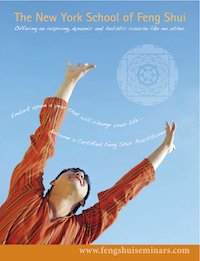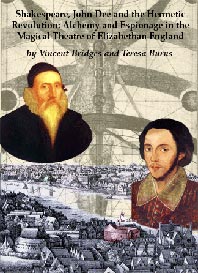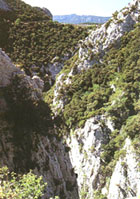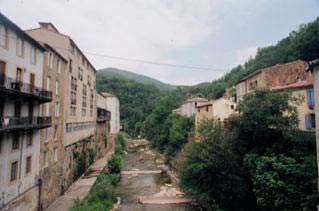
Back to South France Retreat and Tour John Dee and Shakespeare’s Secret Identity Revealed“Shakespeare and Dr. Dee”
“If we make the identification of Dee’s “Francis Garland” with the rising playwright William Shakespeare then most of the mysteries surrounding Shakespeare’s life disappear like actors at the end of a play. A sudden light is thrown on the so-called lost years, and a real person, not a cipher or a mask, emerges,” comments author Vincent Bridges. “Comparing the dates when Dee notes Francis Garland in his diaries with the known dates of Shakespeare’s life shows clearly that the idea is impossible to disprove,” Bridges continues, “Francis Garland appears in Dee’s diary from December 1586 through March of 1595, and in all that time we find not a single instance of Shakespeare being somewhere else when Francis Garland was visiting Dee.” If in fact Dee’s courier was William Shakespeare, this connection to John Dee and Edward Kelley and their intersecting magical and alchemical circles can help us answer two of the most vexing question in Shakespearian scholarship: first, why is it so difficult to find references to the Bard in his own time? And second, how and why does the work of someone who is all but invisible through 1593 become associated with the plays that for more than two decades dominate Elizabethan and Jacobean drama, and become the most-read and most-performed plays in the English language? It is easy, from a modern perspective, to dismiss this incident as a superstitious legend, but the crystal still exists, on display in the Manuscript Room of the British Museum. Dr. Dee kept careful records and made notes almost obsessively. We have notes on the construction of his other scrying glasses, as these types of crystals were known, but nothing, except the above incident, about the smoky quartz egg. Even Dee's first biographer, Meric Causabon, who was anything but sympathetic, simply reports the origin of the crystal without comment. However strange this encounter may be, it is the use Dee made of his angelic gift that is the crux of the story. John Dee was born in 1527 and his formative years were colored by the religious turmoil brought on by the Reformation. Dee's family, through which he would later claim distant kinship with Queen Elizabeth, arrived in London in the wake of Henry Tudor's coronation as Henry VII. His father was a gentlemen's gentleman for Henry VIII, and John Dee's character was molded in a climate of religious protest and reaction. By the time he went up to Cambridge at fifteen, he was searching for a resolution to the problem of religious authority, seeking a type of spiritual science that could supply insight into the workings of nature by infusing the natural world with mystical meaning.
The Ophanic Intelligences, the sentience of whirling Light, gave Dr. Dee a powerful tool for leveraging reality. Imagine a magick tool box, small enough and portable enough to be scattered throughout the galaxy. The tool box contains "tools" designed to build a mechanism that functions as a combination radio set, life raft and emergency medical instrument. Included along with the tools is a DNA trigger coded instruction sheet. The information was originally given to Dee because he could understand and respect the material. More Study Notes on John Dee. |



 American independent scholar and esoteric
historian Vincent Bridges reveals William Shakespeare’s secret
identity during his so-called Lost Years. The result of five years of research by Bridges and his
co-author Teresa Burns, the identification of William Shakespeare with the previously
unidentified “Francis Garland” of Dr. John Dee’s diaries reveals
a completely new perspective on the Bard’s life and work. Not only was he an
intimate of occultists and spies, but also he may have witnessed an alchemical transmutation.
American independent scholar and esoteric
historian Vincent Bridges reveals William Shakespeare’s secret
identity during his so-called Lost Years. The result of five years of research by Bridges and his
co-author Teresa Burns, the identification of William Shakespeare with the previously
unidentified “Francis Garland” of Dr. John Dee’s diaries reveals
a completely new perspective on the Bard’s life and work. Not only was he an
intimate of occultists and spies, but also he may have witnessed an alchemical transmutation. During the spring of 1581, John Dee had a close
encounter with an angel. He was praying in the chapel of
his Mortlake home when a sharp rapping sound drew him to the curtained
windows. Throwing aside the drapes, John Dee came face to face with
a shining being floating a full 12 feet off the ground. The being
gestured for Dee to open the window. When he did, the shining figure
handed him a smoky quartz egg about the size of a baby's head. Dee
took the quartz egg, and the figure vanished.
During the spring of 1581, John Dee had a close
encounter with an angel. He was praying in the chapel of
his Mortlake home when a sharp rapping sound drew him to the curtained
windows. Throwing aside the drapes, John Dee came face to face with
a shining being floating a full 12 feet off the ground. The being
gestured for Dee to open the window. When he did, the shining figure
handed him a smoky quartz egg about the size of a baby's head. Dee
took the quartz egg, and the figure vanished. John Dee was the Einstein of the era, a mathematician, astronomer,
astrologer, geographer, and occultist, who collected the largest library
in England and one of the best in Europe. Beginning in the early 1580s,
Dee, along with his “scyer” or clairvoyant Edward Kelley,
conducted a years long series of communications with “angelic
intelligences.” In 1583, Dee, Kelley and their families embarked
on a kind of apocalyptic missionary journey in which they attempted
to enlisted both Stephen I and Rudolph II, the rulers of Poland and
The Holy Roman Empire. Dee returned to England in 1589, leaving Edward
Kelley behind in Prague. Kelley apparently died in Prague sometimes
during the mid 1590s while attempting to escape from one of Rudolph
II’s prisons.
John Dee was the Einstein of the era, a mathematician, astronomer,
astrologer, geographer, and occultist, who collected the largest library
in England and one of the best in Europe. Beginning in the early 1580s,
Dee, along with his “scyer” or clairvoyant Edward Kelley,
conducted a years long series of communications with “angelic
intelligences.” In 1583, Dee, Kelley and their families embarked
on a kind of apocalyptic missionary journey in which they attempted
to enlisted both Stephen I and Rudolph II, the rulers of Poland and
The Holy Roman Empire. Dee returned to England in 1589, leaving Edward
Kelley behind in Prague. Kelley apparently died in Prague sometimes
during the mid 1590s while attempting to escape from one of Rudolph
II’s prisons.